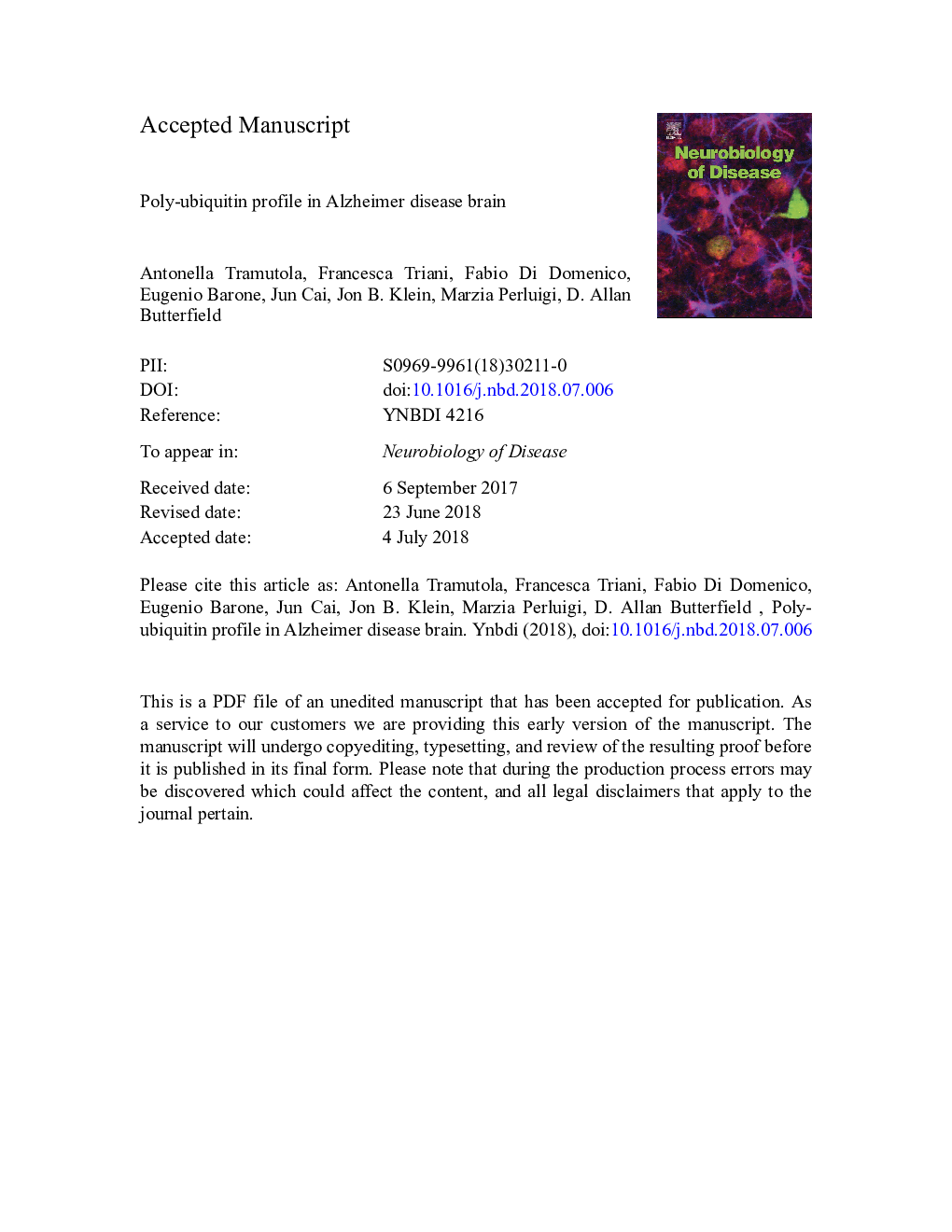| کد مقاله | کد نشریه | سال انتشار | مقاله انگلیسی | نسخه تمام متن |
|---|---|---|---|---|
| 8686314 | 1580602 | 2018 | 36 صفحه PDF | دانلود رایگان |
عنوان انگلیسی مقاله ISI
Poly-ubiquitin profile in Alzheimer disease brain
دانلود مقاله + سفارش ترجمه
دانلود مقاله ISI انگلیسی
رایگان برای ایرانیان
کلمات کلیدی
موضوعات مرتبط
علوم زیستی و بیوفناوری
علم عصب شناسی
عصب شناسی
پیش نمایش صفحه اول مقاله

چکیده انگلیسی
Alzheimer disease (AD) is a neurodegenerative disorder characterized by progressive loss of memory, reasoning and other cognitive functions. Pathologically, patients with AD are characterized by deposition of senile plaques (SPs), formed by β-amyloid (Aβ), and neurofibrillary tangles (NTFs) that consist of aggregated hyperphosphorylated tau protein. The accumulation of insoluble protein aggregates in AD brain can be associated with an impairment of degradative systems. This current study investigated if the disturbance of protein polyubiquitination is associated with AD neurodegeneration. By using a novel proteomic approach, we found that 13 brain proteins are increasingly polyubiquitinated in AD human brain compared to age-matched controls. Moreover, the majority of the identified proteins were previously found to be oxidized in our prior proteomics, and these proteins are mainly involved in protein quality control and glucose metabolism. This is the first study showing alteration of the poly-ubiquitin profile in AD brain compared with healthy controls. Understanding the onset of the altered ubiquitin profile in AD brain may contribute to identification of key molecular regulators of cognitive decline. In AD, deficits of the proteolytic system may further exacerbate the accumulation of oxidized/misfolded/polyubiquitinated proteins that are not efficiently degraded and may become harmful to neurons and contribute to AD neuropathology and cognitive decline.
ناشر
Database: Elsevier - ScienceDirect (ساینس دایرکت)
Journal: Neurobiology of Disease - Volume 118, October 2018, Pages 129-141
Journal: Neurobiology of Disease - Volume 118, October 2018, Pages 129-141
نویسندگان
Antonella Tramutola, Francesca Triani, Fabio Di Domenico, Eugenio Barone, Jian Cai, Jon B. Klein, Marzia Perluigi, D. Allan Butterfield,